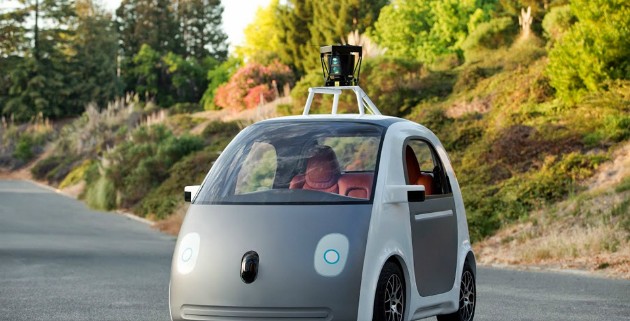NHTSA: Google’s Artificial Intelligence System Counts as a ‘Driver’ for Self-Driving Cars
Jennifer van der Kleut
You may remember the big upset a few months ago, when California’s Department of Motor Vehicles (DMV) proposed new legislation that would require all vehicles-even self-driving ones-to include a human driver, steering wheel and pedals.
Naturally, Google was quite unhappy about the proposed law, since its large fleet of self-driving test cars feature neither steering wheels nor pedals, and though employees are always in the cars to collect data, the eventual idea is that the cars would be fully autonomous.
Therefore, it was big news this month when the National Highway Transportation and Safety Administration (NHTSA) went in the other direction and said that Google’s artificial intelligence (AI) system could satisfy the requirement for a “driver.”
In other words, a car’s “driver” doesn’t have to be human.
“This is a critical first step for Google towards commercializing self-driving cars—a goal it wants to meet by 2020,” said Fortune Magazine.
At this point, though, the victory is still only in theory. As Fortune points out, the challenge now will be for Google to prove that its AI meets the same high standards as human controls.
“NHTSA’s interpretation doesn’t mean fully autonomous vehicles are legal for public use. The next question is whether, and how, Google could certify that the self-driving system meets a standard that currently applies to vehicles with a human driver, says NHTSA’s chief counsel Paul A. Hemmersbaugh in a letter,” Fortune writes. “This, in turn, leads to the next obvious hurdle: NHTSA must first test or find some way to verify such compliance.”
Karl Brauer, senior analyst for the Kelley Blue Book automotive research firm, told Reuters that though he believes there are still important legal questions that need to be answered before autonomous cars can go mainstream, NHTSA’s declaration could help that process.
“If NHTSA is prepared to name artificial intelligence as a viable alternative to human-controlled vehicles, it could substantially streamline the process of putting autonomous vehicles on the road,” Brauer said.
Industry experts and Google reps appear to be cautiously optimistic about NHTSA’s declaration.
“In general, NHTSA’s determination seems to be a victory for Google, letting it go forward with its intended self-driving vehicle design,” said the folks at CNET. “However, individual state rules will still apply as to how Google’s cars can be operated on public roads.”

